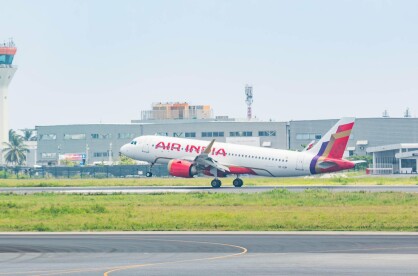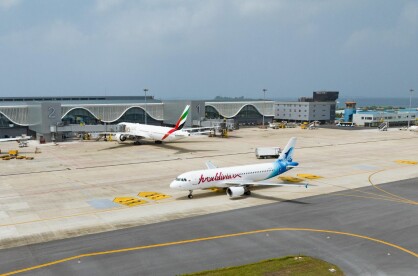One of the biggest milestones a country needs to reach when talking about development is workers' rights. Ensuring people work in a safe, healthy environment where the work they do is met with a fair wage. For this reason alone, an Employment Act is extremely important, the rights of workers need to be protected above all to ensure that employers do not take advantage of their employees and that the employees get fair treatment regardless of their country, gender or colour.
Maldives has enacted an Employment Act which protects everyone from being overworked, and forced into employment and ensures that child labour is not practiced in the country. While this Act covers a number of rights of workers, one thing that was missing for a long time has been the minimum wage.
Without enforcement of minimum wage, employers were free to pay their employees as they saw fit, meaning a number of people were being overworked and severely underpaid. A minimum wage is important not only to protect people from underpayment but also ensure that people are making enough to make ends meet in the country that they are living in.
Introduction of minimum wage in the Maldives
Following much discussion, a minimum wage order was drafted in November 2021, which clearly highlights the minimum pay an employer can pay their employee per hour as well as per month for private as well as public sector offices in the Maldives. On the 1st of January 2022, a minimum wage was established in the Maldives for the very first time by the Ministry of Economic Development in an effort to ensure livelihood, inclusivity and an improved workforce.
With the implementation of this Act, many people, especially in the public sector saw an increase in their wages. Many who ranked GS level and below saw an increase in pay as high as going from MVR 4000-5000 to MVR 8000.
The minimum wage for public sector employees was set at MVR 33.65 per hour which amounts to MVR 7000 per month. The minimum wage for the private sector was split into five categories: micro-enterprises, small enterprises, medium enterprises, micro, small or medium enterprises and businesses that are not classified under any of the above.
Micro-enterprises were exempted from paying minimum wage under this Act while small enterprises are to pay MVR 21.63 per hour, medium enterprises to pay MVR 33.65 per hour, micro, small or medium enterprises pay MVR 38.46 per hour and those enterprises which are not registered under any of the above pay MVR 21.63 per hour. In addition to ensuring a fixed wage on people's basic salary, this Act also ensured that workers will get their fixed allowances.
With the implementation of minimum wage, many were finally hopeful of getting a fixed basic salary at the end of each month that would cover their expenses, making living in the Maldives easier for many.
Exclusion of expatriate workers from the minimum wage
While everyone expected the Maldives Law to protect the rights of all workers, regardless of nationality, it failed to do so and excluded one of the most exploited groups of workers: expatriate workers. For a country with such a large number of expatriate workers, it appears that the law fails to target at least one-third of the Maldives' workforce.
Even though the Government has been putting in efforts in recent years to replace expatriate workers with locals, when it comes to industries such as construction as well as gardening, it is fairly common to see expatriate workers doing all the heavy lifting. This is a common sight one can see in the day-to-day in the Maldives, one stroll near a construction site would prove who is behind the infrastructure that we see in the Maldives.
And while this should be enough to ensure that the expatriate workers get a fair wage and protection from being overworked for crumbs that will not even cover rent, let alone food expenses, the harsh reality is that the same workers doing the heavy lifting are not protected under our laws.
When the amendment to Employment Act was drafted, it only covered the minimum wage for locals, with the inclusion of the minimum wage for expatriates to be drafted within two years - meaning it was due by September 2022. However, on the 49th sitting of the Parliament of the Maldives, the bill to amend the Employment Act to include foreigners in minimum wage was postponed indefinitely citing ‘difficulties in the Maldivian economy due to the ongoing global crisis’.
The passing of this bill was not well received as the Maldives had signed the “equal remuneration convention” of the International Labor Organization in 2013, which states that all workers should be paid an equal wage for carrying out the same tasks. However, the passing of the amendment and excluding expatriates clearly meant that locals would be paid more than expatriates for carrying out the same work.
With the Maldives having the highest proportions of migrants in South Asia, amounting to about 250,000 migrants, accounting for 1/3 of the Maldives' population, and an estimated 60,000 of these lower-skilled workers mostly from India and Bangladesh being undocumented, demonstrating the severe problems and discriminations in the Maldives' workforce, the passage of a bill excluding them from minimum wage will only exacerbate the discrimination.






